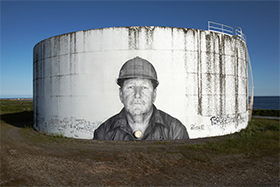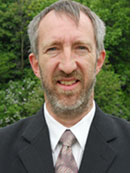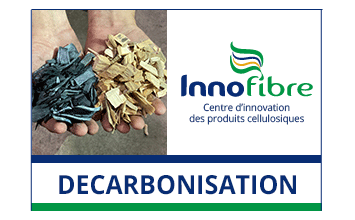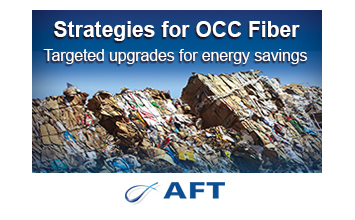The recent announcement of the permanent closure of the pulp and paper mill in Powell River, BC, which had been idled since 2021, evoked some nostalgic thoughts about the many mill closures in the Canadian industry over the last half century.
Each of these facilities has an interesting history and many fascinating stories can be told about their owners and employees. I found enough entries for almost a whole alphabet! I had to get a little creative towards the end of the alphabet, as you will see!
A is for Amos, QC, whose newsprint mill ran from 1982 to 2021.
B is for Bathurst, NB, whose corrugating medium mill was closed in 2005.
C is for Chandler, QC, where the first operations started in 1912. Its operation as a newsprint mill halted in 1999, and a project to convert the mill to coated paper was never completed.

D is for Dalhousie, NB, whose newsprint mill was shut down in 2008.
E is for the Eurocan operation in Kitimat, BC, producing unbleached linerboard and sack-kraft paper, permanently closed in 2010.
F is for Fort Frances, ON, which produced kraft pulp and specialty groundwood paper, permanently closed in 2014.
G is for Gold River, BC, which ceased newsprint production in 1993 and kraft pulp production in 1998.
H is for Hawkesbury, ON, where the pulp mill that had been in operation since 1898 was closed in 1982.
I is for Iroquois Falls, ON, whose newsprint mill started up in 1914 and was closed in 2015.
J is for Jonquière, QC, where Cascades closed its Fjordcell kraft pulp mill in 2006.
K is for Kenora, ON, whose newsprint mill was closed in 2005.
L is for Liverpool, NS, where the newsprint mill known as Mersey Paper, for many years a joint venture with the Washington Post, was closed in 2012.
M is for the Matane, QC paperboard mill closed by Rock-Tenn in 2012.
N is for New Richmond, QC, whose linerboard mill closed in 2005.
O is for Ocean Falls, BC, where a site abandoned by Crown Zellerbach in 1973 was purchased by the provincial government and ran until 1980.
P is for Port Arthur (ON) – coated paper, Port Alfred (QC) – newsprint and Port Alice (BC) – dissolving pulp, which ceased operations respectively in 1993, 2003 and 2015.
Q is for Quebec and Ontario Paper, which was a corporate name in effect from 1983 to 1993, running the mills in Thorold (ON) and Baie-Comeau (QC). Its previous name was Ontario Paper and its name was changed to QUNO when its owners at the time, the Chicago Tribune, turned it into a public company. The paper mills were shut down in 2017 and 2021, respectively.
R is for Red Rock, ON, whose linerboard mill ceased operating in 2006.
S is for Stephenville, Newfoundland, whose newsprint mill was closed in 2005.
T is for Thorold, ON., where Ontario Paper began operations in 1913 and made many products, including vanillin (artificial vanilla extract) from lignin. The site ceased production in 2017.
U is for Usk, Washington – I had to reach below the Canadian border to find an operation corresponding to the letter U, but there is a Canadian connection, as Resolute Forest Products had minority ownership of the operating company, Ponderay Paper, which closed the mill in 2020.
V is for a variety of other mills (yes that’s a copout, but if anyone can think of a candidate, let me know!)
W is for West Tacoma – another Washington State newsprint mill with a Canadian connection – it was owned by Abitibi-Consolidated when it was closed in 1999.
X – yes, these are all ex-mills. Why (see Y)?
Y (Why?) The root causes are supply and demand, combined with cost of production. Some mills closed due to lack of affordable fibre supply, some because of declining demand for their products, and others because they simply couldn’t make a profit any more.
Z is for Zellerbach, more specifically Crown Zellerbach Canada, once the third largest forest company in Canada, which ran pulp mills in Ocean Falls (see O) and Elk Falls, BC on Vancouver Island, which closed in 2010.
As a tribute to the past, the community of Chandler (see C) painted portraits on some of the remaining tanks at the site, as shown in the accompanying photo. I would be interested in hearing if other ex-pulp and paper communities have done something imaginative with their sites. Meanwhile, let’s think about some of the new products that can be made from wood in the next few years – A is for acetic acid, B is for bio-coal, C is for cosmetics, D is for detergents, E is for energy, F is for furfural, G is for glucose…
 Martin Fairbank, Ph.D. Martin Fairbank has worked in the forest products industry for 31 years,
Martin Fairbank, Ph.D. Martin Fairbank has worked in the forest products industry for 31 years,
including many years for a pulp and paper producer and two years with
Natural Resources Canada. With a Ph.D. in chemistry and experience in
process improvement, product development, energy management and lean
manufacturing, Martin currently works as an independent consultant,
based in Montreal. He is also an author, having recently published
Resolute Roots, a history of Resolute Forest Products and its
predecessors over the last 200 years.
Martin Fairbank Consulting
Industry Experience
- Pulp and Paper Technology
- Materials Recycling
- Biorefinery Development
- Manufacturing
- Government Subsidy Programs
Services
- Technical Writing
. White Papers
. Grant Applications
. Explain technical concepts - Scientific Editing
. Review of articles for publication - Project Assessment
. Evaluation of Technologies
. Project evaluation for funding agencies - Pulp & Paper
. Conventional and emerging technologies













